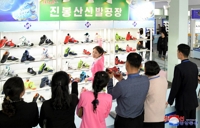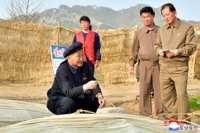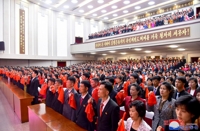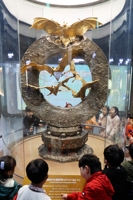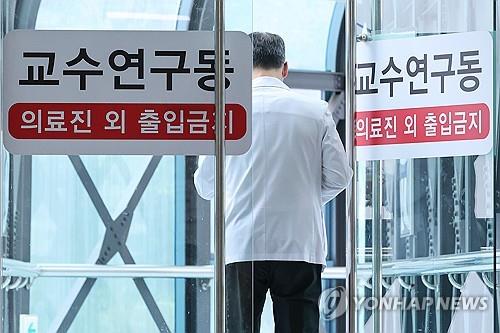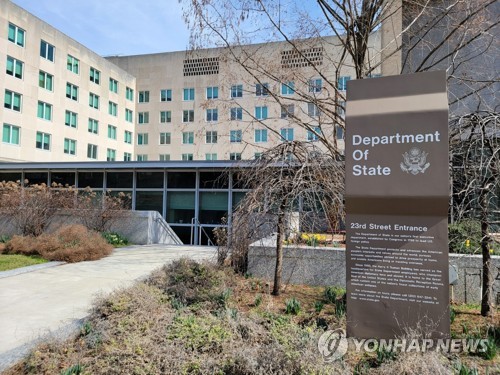(News Focus) Rival presidential candidates clash over THAAD
By Joo Kyung-don
SEOUL, Feb. 3 (Yonhap) -- The U.S. THAAD missile defense system has emerged as a hot topic in South Korea's presidential race, with the main opposition candidate pitching an additional THAAD battery deployment as a campaign pledge and his ruling party rival accusing him of using national security for political gains.
The Terminal High Altitude Area Defense system, or THAAD, was first deployed in South Korea in 2017 to deter North Korea's nuclear and missile provocations. Its base, operated by the U.S. Forces Korea (USFK), is in Seongju County, North Gyeongsang Province.
The issue came to the fore after Yoon Suk-yeol of the main opposition People Power Party (PPP) posted a one-line campaign pledge, "Additional THAAD deployment," on his Facebook page on Sunday after a series of missile launches from North Korea in recent weeks.
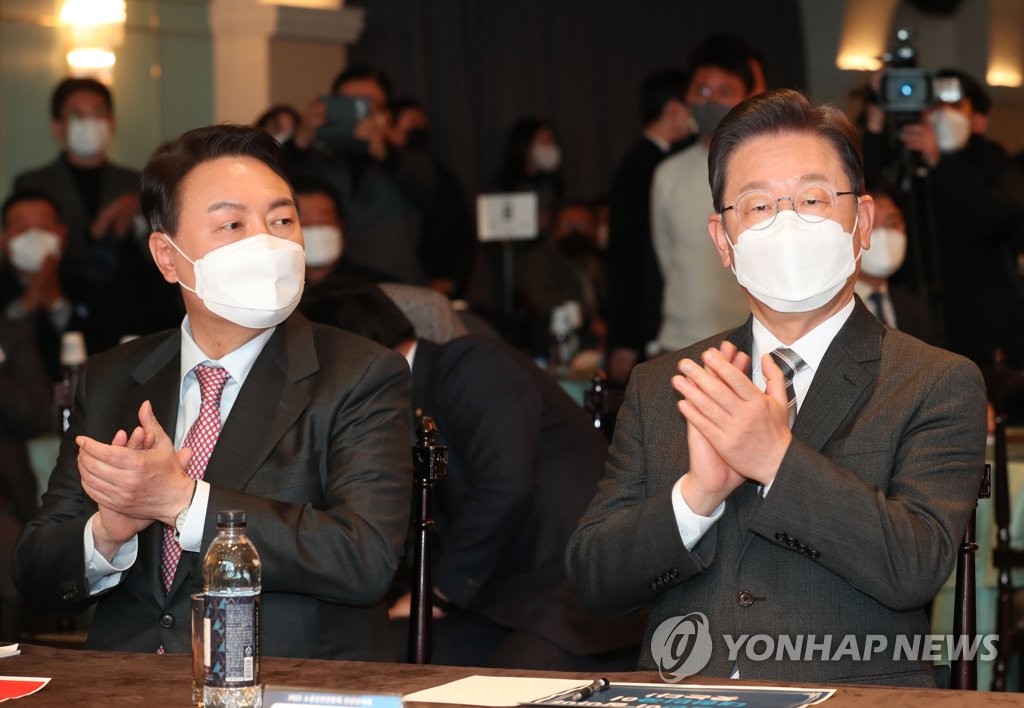
Yoon Suk-yeol (L), the presidential candidate of the main opposition People Power Party (PPP), and Lee Jae-myung, the presidential candidate of the ruling Democratic Party (DP), clap their hands during a event hosted by an association of small businesses in Seoul on Jan. 18, 2022. (Pool photo) (Yonhap)
"North Korea have carried out missile provocations seven times alone in January, so I had to think about a special measure to protect our people's lives and safety," Yoon said of his THAAD plan on Tuesday.
Yoon's camp claimed that an additional missile defense system is needed to protect some 20 million people in the capital area, pointing out that the existing THAAD unit in Seongju cannot guard the densely populated area with limitation of its range.
"The THAAD battery in Seongju can cover a range of 200 kilometers, meaning its missile intercept range reaches only southern parts of the capital area, not the entire capital area," said former Army Gen. Kim Yong-hyun, currently working for the global vision committee under Yoon's campaign.
"We have not decided where exactly to put it (the additional THAAD battery), but it will be in the area where it can cover the capital area and the northern part of Gyeonggi Province," he said.
The ruling Democratic Party (DP) candidate, Lee Jae-myung, slammed Yoon's pledge as a "reckless" idea, citing quotes from former USFK commander Vincent K. Brooks that additional THAAD deployment is not needed if allies can operate existing THAAD with other antimissile systems like the Patriot.
"When there is a war, it is young people who die and heightened military tensions will aggravate the already difficult economy," Lee said.
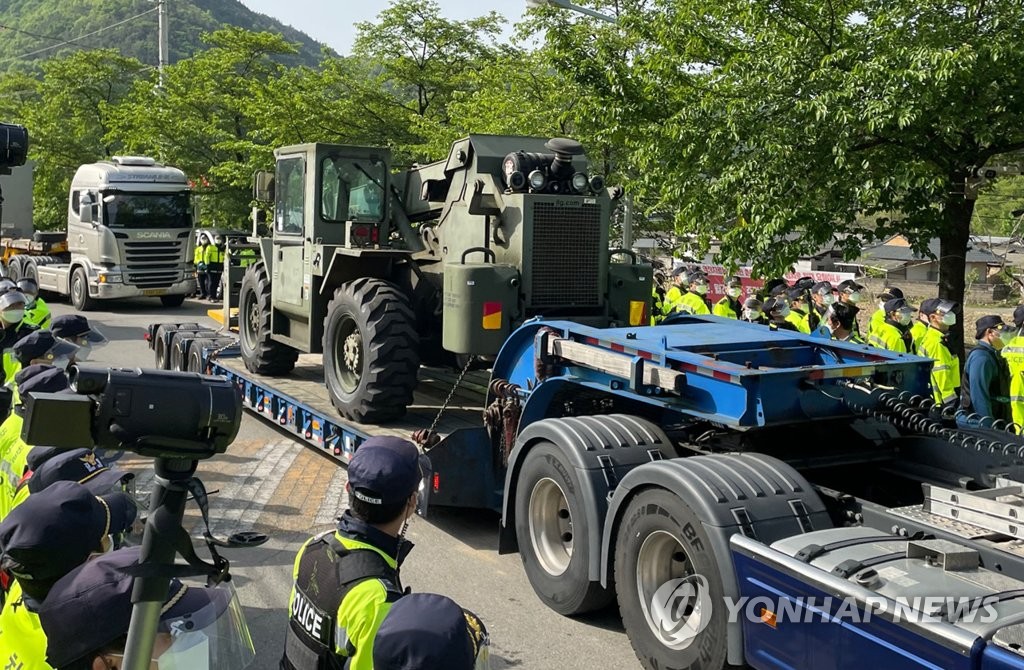
Power generators and other heavy equipment are transported to a Terminal High Altitude Area Defense (THAAD) base in Seongju County, North Gyeongsang Province, in this photo taken on April 28, 2021. (Yonhap)
Lee's campaign especially pointed out that additional THAAD deployment could provoke China and lead to a possible economic retaliation campaign, which South Korea had experienced with its initial THAAD installment a few years ago.
China has been condemning the U.S. missile defense system in South Korea as a threat to its national security. Its boycott of South Korean products has dealt a massive blow to South Korea's tourism and retail industries.
"About 25 percent of our exports head to China and generate the most trade surplus (among any other market)," Lee said. "If we create a controversy with things like THAAD and provoke the Chinese government, what would happen to our firms?"
The PPP refuted Lee's claims, emphasizing that the additional air defense system will be operated by the South Korean military, not by the U.S. forces.
"It is not the USFK that will deploy an extra THAAD system," said Kim Sung-han, a former vice foreign minister who leads the diplomacy and security policy unit of Yoon's campaign. "We will be purchasing the THAAD system for our self-defense."
Yoon's campaign expected that it will cost about 1.5 trillion won (US$1.2 billion) to deploy an additional THAAD system.
Analysts believe Yoon's recent pledge of additional THAAD deployment is aimed at gathering conservative voters amid North Korea's recent missile tests. It also follows Yoon's remarks that the South should carry out a preemptive strike in the event North Korea appears ready to fire a nuclear-tipped missile at the South.
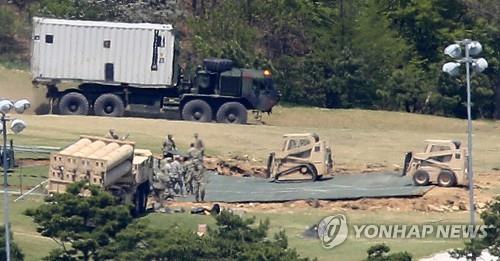
This photo taken on April 27, 2017, shows a Terminal High Altitude Area Defense system operated by the U.S. Forces Korea in Seongju County, North Gyeongsang Province. (Yonhap)
The DP sees Yoon's recent pledge as "security populism" trying to get votes by heightening tensions on the Korean Peninsula.
"Yoon is raising tensions with remarks like redeployment of (U.S.) tactical nuclear weapons, preemptive strikes and an additional THAAD system," DP floor leader Yun Ho-jung said. "Our people will not entrust national security to this kind of candidate who would do anything to get votes."
Yoon rejected the DP's claims.
"They say I am a war fanatic, but protecting people's lives and safety is the basic duty of the government," he said. "THAAD is not an attacking weapon. If you see establishing a defense system as a war fanatic, it means you have given up the national security."
kdon@yna.co.kr
(END)
-
 Ateez member Yunho throws first pitch at MLB match between Dodgers, Mets
Ateez member Yunho throws first pitch at MLB match between Dodgers, Mets -
 Gov't likely to accept university chiefs' request to lower med school enrollment quota
Gov't likely to accept university chiefs' request to lower med school enrollment quota -
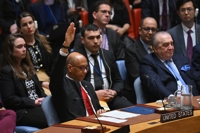 S. Korea supports resolution backing U.N. membership of Palestine
S. Korea supports resolution backing U.N. membership of Palestine -
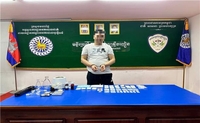 Chinese man behind drug scam targeting teens nabbed in Cambodia
Chinese man behind drug scam targeting teens nabbed in Cambodia -
 S. Korea, U.S. to hold 1st round of defense cost sharing talks this week
S. Korea, U.S. to hold 1st round of defense cost sharing talks this week
-
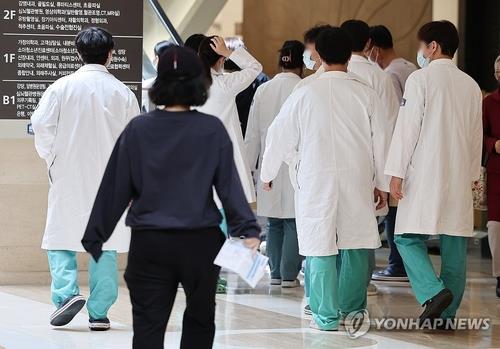 Gov't likely to accept university chiefs' request to lower med school enrollment quota
Gov't likely to accept university chiefs' request to lower med school enrollment quota -
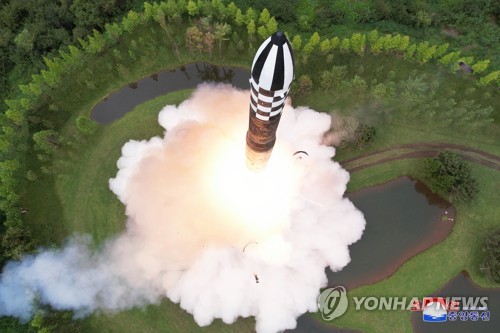 Experts see possibility of N.K. conducting nuclear test before U.S. presidential vote
Experts see possibility of N.K. conducting nuclear test before U.S. presidential vote -
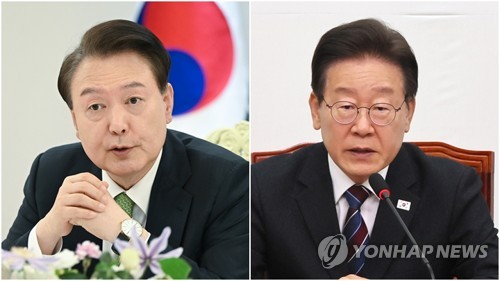 Details of meeting between Yoon, opposition leader undecided: presidential office
Details of meeting between Yoon, opposition leader undecided: presidential office -
 Looming weekly closure of major hospitals feared to worsen medical service crisis
Looming weekly closure of major hospitals feared to worsen medical service crisis -
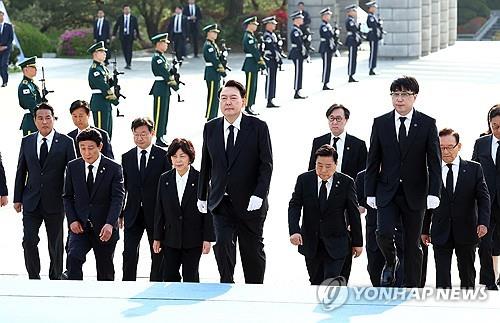 Yoon's approval rating sinks to lowest point since taking office
Yoon's approval rating sinks to lowest point since taking office
-
 (LEAD) Hybe to file complaint against sublabel executives over internal conflict
(LEAD) Hybe to file complaint against sublabel executives over internal conflict -
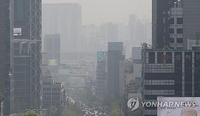 S. Korea reports highest suicide rate, ultra fine dust level among OECD nations: data
S. Korea reports highest suicide rate, ultra fine dust level among OECD nations: data -
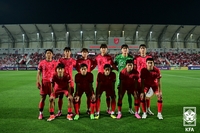 10-man S. Korea lose to Indonesia to miss out on Paris Olympic football qualification
10-man S. Korea lose to Indonesia to miss out on Paris Olympic football qualification -
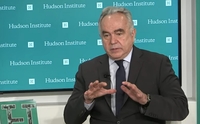 U.S. will take steps for three-way engagement on nuclear deterrence with S. Korea, Japan: Campbell
U.S. will take steps for three-way engagement on nuclear deterrence with S. Korea, Japan: Campbell -
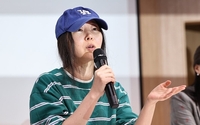 (3rd LD) Hybe to file complaint against sublabel executives over internal conflict
(3rd LD) Hybe to file complaint against sublabel executives over internal conflict















